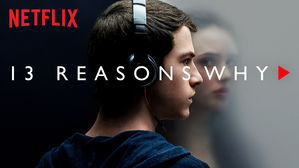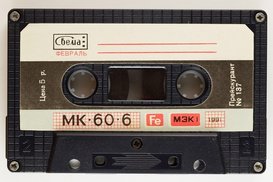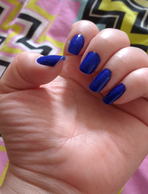 Photo - Netflix - https://www.netflix.com/title/80179249 Photo - Netflix - https://www.netflix.com/title/80179249 Disclaimer: I wrote these blogs a long time ago! I'm leaving them up as I don't want to delete my journey and I think showing growth is important. But it means that some of my views, and some language I use, is now different. Please be mindful of this, and that the content might be triggering, if you choose to read on. Trigger warning: rape, sexual assault and suicide. Contains season one spoilers. I just finished watching 13 Reasons Why on Netflix. Oh. My. God. We need to talk about this show. This is a really important series. It made me emotional. It made me cry. It made me feel down, but it was worth it. I was careful not to read anything about 13RW until I finished, so it was only then I discovered the backlash. I’d like to go through the negative comments and explain my take on them. Who am I? No expert, but I have a little insight. I work for a mental health organisation, am a screenwriter (a wannabe at least) and I was bullied at school (though it was before the days of social media so I guess I had it easy in comparison). Here are some of the negative responses I’ve come across so far: ‘Hannah is selfish and is overreacting’ If this is truly the way you think, please read up a little bit about depression and mental health issues. This is a very uncompassionate, selfish view to take, anchored in your own limited perspective. Where is your empathy? This view belittles her feelings and defeats the main points of the show. Hannah became so isolated that she felt nobody could help her and her life was empty. This was the result of the behaviour of people at school, but also because of bigger issues in our society of rape culture, gender inequality and sexism. 13RW is a statement on how mental health in teenagers, teenage girls in this case, isn’t taken seriously. If you think Hannah was selfish you might be the sort of person that thinks girls lie about rape or suicidal thoughts ‘for attention’, in which case you are part of the problem. Even if someone takes their own life ‘for attention’, they still made that choice so it’s almost irrelevant. It’s a cry for help, often too late. To think that girls are overly sensitive and emotional proves our social issue around kindness and empathy being weak traits. 'Helplines have got busier' “The Australian youth mental health service for 12–25 year-olds, Headspace, issued a warning in late April 2017 over the graphic content featured in the series due to the increased number of calls to the service following the show's release in the country.” - Wikipedia GOOD! If someone watches 13RW and makes a call to tell someone they were thinking about killing themselves, that’s one life that could be saved. If this show is making people speak out, how can that be a bad thing? ‘It never used the words mental health or depression’ Writers are told to ‘show and don’t tell’. 13RW relies on the audience to be able to recognise that Hannah’s mental health problems without the writers having to spell it out. Sometimes certain words can put people off if it seems like buzzwords or jargon. For instance, saying rape culture, feminism, heteronormative, might alienate some audience members. Feminism has a bad reputation (I don’t agree with that, I’m just sharing what I see all the time online). To make a TV show which demonstrates feminist issues instead of using words which might put people off is a powerful and influential way of telling a story. After all, if you’re going to raise awareness and change minds, you need to write in a way your audience can understand. ‘It glamorises suicide’ Oh, like Trainspotting glamorised heroin? I was teenager when that came out and the last thing it made me want to do was take heroin. In fact, it put me off taking drugs altogether. That had more of an impact than any anti-drugs talks at school. Often female suicide scenes in films are a little too beautiful, but Hannah’s death is realistic and painful, harsh and brutally permanent. Some schools in the US have sent emails to parents warning them about the show. Do adults know nothing about young people? I’m not even that young any more but it’s pretty obvious if you make a big deal out of something and tell kids not to watch something, they will find a way. That’s what I did with Trainspotting. Just accept that they’re going to watch it, and talk about it. ‘Hannah could’ve done more. Clay was there for her all along’ Hannah’s mental health problems got so severe that she didn’t have any energy to ask for any more help. People around her couldn’t recognize that there was a problem, much like many viewers of the show it seems. It’s sad that a lot of the events leading up to her death aren’t seen as anything unusual. This is how normal sexist behaviour has become. Hannah had a picture taken and shared without her consent, then put on the ‘hot list’, and then she was assaulted in public (when Bryce grabs her bum). I’m sure any girls would be familiar with these types of things, but it’s not normal. It’s not acceptable behaviour, and it should be passed off just because it happens a lot. That’s all the more reason to stop tolerating this kind of behaviour now. In terms of Clay, Hannah was not going to be saved by a love story. We have a major problem in our society with the ‘happy ending.’ The problem with most happy endings is that the heteronormative monogamous relationship, between two young people who stay married forever, is the epitome of perfect. We know it doesn’t always work exactly like that in real life, but we still hold it as the ideal. I bet a lot of viewers were hoping Hannah was just hiding somewhere, then Clay could save her and they’d run off into the sunset together. Happy endings give us unrealistic expectation of love, relationships, gender roles and happiness. Love does not equal happiness. How can a TV show which demonstrates the need to tackle rape culture and suicide be criticised more than the heteronormative, patriarchal rom-coms with thin, pretty women pandering to men? These films only add to the pressure on young people. Sometimes we have to watch something a little more challenging than a rom-com, otherwise we’ll never learn anything. ‘It says the other characters should blame themselves for Hannah’s death’ Many of the characters blame themselves but that’s part of their grieving process. I think the show is saying that schools can do better. That we – society - can do better. As Clay says, we all need to be kinder, not necessarily in a make-everyone-a-cup-of-tea sort of way (though wouldn’t that be nice) but rather try to understand why other people feel the way they do. Step into their shoes. This is compassion. There’s no harm in giving it a try. ‘There are too many high school tropes’ That's the point. Jocks, cheerleaders, nerds – as a screenwriter I’d be quick to point out stereotypical, overused characters in a high school drama. However, it was on purpose in 13RW to demonstrate how normalised their behaviour is. It holds a mirror up to society and shows us what we’ve become. The jocks rule the roost in American schools it seems, and we’ve got our equivalent in the UK. Everyone knows you need to at least try to be on the good side of the bullies or popular kids in order to survive school, which is why it’s hard to stand up to guys like Bryce. He’s the epitome of what our society sees as perfect masculinity – rich, white and powerful. Men like him grow up to be men like Donald Trump, and it’s clear there’s a lot of people who like him and his ‘locker room talk’. This has to change. ‘It's not realistic’ Despite the backlash, there are a lot of reviewers and people on social media saying how much the show had moved them and how they can relate to Hannah, I certainly can and it’s been quite a long time since I was at school! When Hannah said ‘but you’ve never been a girl’, it really stuck with me. 13RW is a harsh but true depiction of what can happen to young women growing up in a culture of objectification, toxic masculinity and rape culture. There are unfortunately too many Bryce’s in the world – rich white men, often athletes - protected because they’re at the top of the power food chain. ‘It's oversimplified – “be kind” doesn’t save lives’ True, but when Clay says ‘ we need to be kinder to each other’ I didn’t take that to mean ‘kindness can cure depression and stop people from killing themselves’ but that doesn’t mean it’s not true. People choose to take their own lives because of mental health issues, but there are factors in our society which are not helping. Rape culture ie normalised objectification, sexism, power over women, slut shaming, masculinity standards. We dismiss misogynistic behaviour as ‘boys will be boys’/’bro code’/’locker room talk’. We teach boys that being kind and compassion is weak, that they must hide their emotions and ‘man up.’ If you look at most of the terrorists and mass shooters in the world, not a lot of them are women. With the message that emotion and empathy equal weakness, it’s not hard to see why. Hannah is a demonstration of what could happen to girls growing up in a society of gender expectations and judgementalism. It’s a hard-hitting show because it has to be. People have been talking and writing about rape culture, consent and gender inequality for a long time but people weren’t listening. It’s taken a brutally harsh TV show to make the world sit up and take notice.  #bluenailsforhannah #bluenailsforhannah 13RW was hard to watch because it’s talking about the very things we want to pretend don’t exist. It forces us to notice. This is the power of storytelling. It has started a dialogue and might help chip away at the shame and stigma we’ve built up around such subjects. We need to listen to young people, many of them are loving the show. Instead of focussing on the suicide, focus on the reasons why – this is the point of the show after all. It makes no sense that everyone’s talking about the suicide, yet not about the gender inequalities which led to it. Instead of protecting people from seeing rape and suicide because it makes them feel uncomfortable, think about what we can do to address the issues which make girls like Hannah want to end their own lives. 13RW is a demonstration of the issues girls face simply for being female, and the expectation of boys to be more powerful, strong, and less emotional. For us to help, we need to not focus on protecting people from seeing suicide in a TV show, but rather break down gender rules and create a kinder, more balanced environment for everybody based on empathy and compassion. If you or someone you know is feeling low, take steps to find help. I work for a mental health organisation and many people tell me ‘I can’t call Samaritans, that’s just for when you want to kill yourself’ but that’s not true. Don’t wait until it gets to crisis point. Everyone needs to ask for help in their lives. We need to be kind and have compassion for others, but for ourselves too. Samaritans: phone 116 123 Recommended further reading - a brilliant article about gender equality by Natalie Bennett, one of the founders of TIGER Bristol.
1 Comment
|
Categories
All
Archives
June 2024
|
